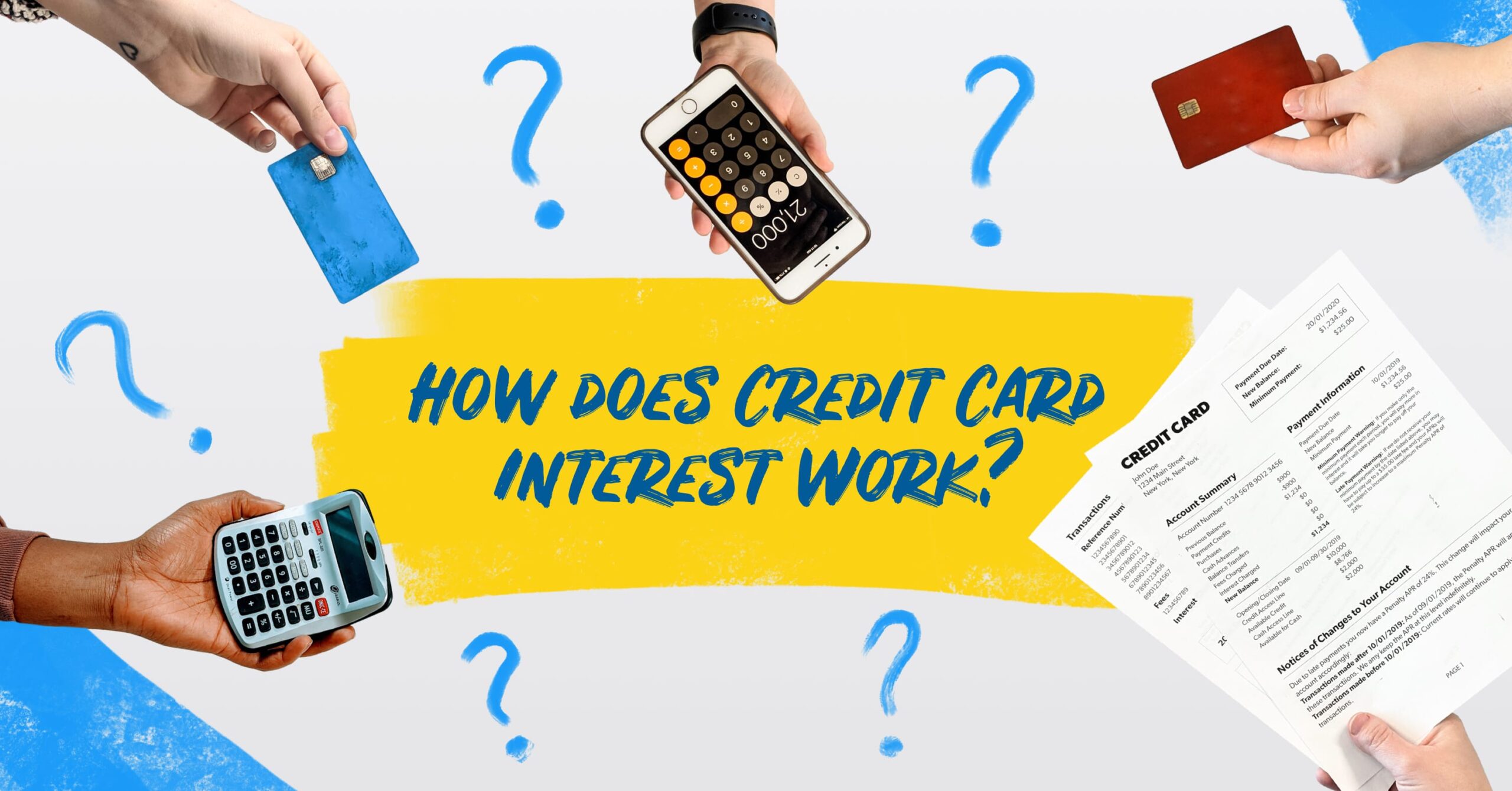When you purchase a credit card from any financial institution you are informed about the interest which will be charged if you fail to pay off the balance for the month. If you are aware of the charges you would also like to know how the credit card interest actually works. The Credit card interest is an amount which is charged when you fail to pay the bill of the credit card in the month. The interest is charged when the cardholder pays the minimum amount due and when the cardholder makes any payment that is less than the total amount due. Simply put, it is an amount which is charged when you are not returning the outstanding amount by the due date. According to the Federal Reserve G19 Report, the credit card debt reached around US$1.1 trillion by February 2020. In 2019 Americans paid US$121 billion as interest and fees. If you understand how your credit card interest works then it might help you lessen the burden of the interest charges.
What is My Interest Rate?
Financial institutions and banks calculate the interest as an Annual Percentage Rate or APR. APR is the annual rate charged for borrowing or paid to investors. The APR calculates the annual rate but the credit card companies use it to calculate the interest rate charged during the monthly statement period. The interest rates vary from bank to bank and it also depends on the type of your card. For example, HDFC Bank charges between 1.99 per cent to 3.40 per cent whereas the interest of ICICI bank ranges between 1.25 per cent to 3.5 per cent.
How is Credit Rate Calculated?
The interest rate is calculated on the outstanding balance of the month bill cycle. To calculate the interest you need to know your APR, total number of days in your billing cycle and your average daily balance. In a hypothetical situation, let’s say your account statement for the credit cycle of July 5 to August 4 is issued to you on August 10. In the given billing cycle you have made purchases worth Rs 30,000. Let us also assume that the minimum due amount is Rs 14,000 and due date is August 15. If you make a payment of the full amount of Rs 30,000 then no interest will be charged and if you pay the due amount then the interest will be charged on the balance. In case you fail to make the payment of the full sum then you will be charged interest on the Rs 30,000.
This is how we will calculate the interest rate:-
- Divide your APR by the number of days in the year
0.13/365 = 0.00035 daily periodic rate - Multiply the daily periodic rate by your average daily balance
0.00035 x Rs 86,400 = Rs 30.24 - Multiply this number by the number of days (30) in your billing cycle.
Rs 30.24 x 31 = Rs 934.44 interest charged for this billing cycle
How to Avoid Paying Credit Card Interest
The best way to avoid paying credit card interest rates is to pay the full amount on or before the due date. When the amount is paid on time or before then no bank will charge the interest. If you are not able to pay within the billing cycle make sure to pay during the grace period, it is the time when the bank allows you to pay the amount without levying on the interest. You can also limit your purchases according to your needs and enjoy the benefits of the card instead of paying the charges.
Conclusion
There might be very few people who will be interested to know how their credit card interest works but it is important for everyone to know what is your credit card interest. It will help you make better decisions to minimise the chances of paying interest. Moral of the story, carrying a balance on your credit card can be very costly, it is better to pay off your balance on the date.









